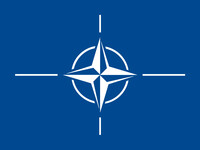Cina: 15esimo anniversario del massacro di piazza Tiananmen
Fifteenth anniversary of the Tiananmen Square massacre
The use of the term "4 June" (Liu Si) is still banned in the press and on the Internet
On 4 June 1989, Chinese army tanks were crushing the student revolt on Beijing's Tiananmen Square, sounding a death-knell for public democratic protest in China. Fifteen years later, the use of the term "4 June" is still banned in the press and on the Internet, and journalists and Internet users are still suffering the consequences of the censorship and repression introduced after the "Beijing Spring."
Over the last 15 years, more than 130 journalists and Internet users have been jailed, of whom 43 directly participated in "Beijing Spring." Among them, three are still behind bars : Yu Dongyue, an art critic with News of Liuyang, who was arrested on 23 May 1989 and sentenced to 20 years in prison ; Chen Yanbin, co-editor of the underground magazine Tielu, arrested in 1990 and sentenced to 15 years in prison, and Liu Jingsheng, a journalist with the underground magazine Tansuo, arrested on 28 May 1992 and sentenced to 15 years in prison.
In addition, Internet webmaster Huang Qi has been in jail since 3 June 2000 for having allowed articles about the Tiananmen Square massacre to be posted on his website, which was hosted in the United States after being initially banned in China. He received a five-year prison term for "subversion" and "inciting the overthrow of state power."
Chinese authorities recently put several human rights activists under house arrest, thereby preventing them from publicly commemorating the 15th anniversary of the bloody crackdown against the Tiananmen Square demonstrators. Among them was Liu Xiaobo, an ardent defender of freedom of expression and author of numerous articles on cyber-dissidence in China. Moreover, Dr. Jiang Yanyong, the military hospital doctor known for exposing the severity of the SARS epidemic in Beijing, was "exiled" to Xinjiang province for asking government officials, last March, to reconsider their position on the massacre of 4 June 1989. In his reply, Prime Minister Wen Jiabao explained that the Communist Party had merely acted to preserve the country's unity and stability.
This year in Hong Kong, the pressure has intensified against journalists and human rights activists who are urging the public to demonstrate on the occasion of 4 June. Unidentified individuals have been tearing down the posters announcing this commemorative event.
Even today, any journalist who dares to question the official version of the events of 4 June-the regime still considers that the Army's intervention was "appropriate"-or attempts to commemorate the "Beijing Spring," is taking a risk.
The Internet is being subjected to the same type of censorship. In May 2003, Reporters without Borders established that the use of the term "4 June" (Liu Si) was prohibited on Chinese websites and in chat rooms. Filters set up by the authorities systematically block any messages referring to the massacre.
Since 4 June 1989, Chinese authorities have been closely monitoring foreign correspondents, especially their relations with dissidents. In the last 10 years, more than 40 foreign journalists have been subjected to peremptory questioning for having met with activists associated with the student movement or the Chinese Democratic Party. Foreign media journalists will be under very close scrutiny as 4 June draws closer. For example, Beijing's city hall passed a new regulation in mid-April 2004 prohibiting any sort of gathering in the vicinity of Tiananmen Square. Despite the promises made by authorities before Beijing was chosen as the site for the 2008 Olympic Games, Reporters without Borders has noted no significant improvement in working conditions for foreign journalists.
On the occasion of this 15th anniversary of the Tiananmen Square Massacre, Reporters without Borders is asking the Chinese government :
to release the 27 journalists and 61 cyber-dissidents currently behind bars, three of whom were jailed for taking part in the 1989 democratic movement ;
to abolish censorship relating to the events of 4 June 1989 in the press and on the Internet ;
to put an end to the harassment and vexatious measures (house arrest, shadowing, wiretaps, etc.) inflicted upon journalists who participated in the "Beijing Spring" ;
to authorize exiled journalists and dissidents to return to China in complete safety ;
to allow the Chinese and international press to report on dissident group activities.
Articoli correlati
 Videointervista ad Alessandro Marescotti
Videointervista ad Alessandro Marescotti"Tornano gli euromissili, siamo davanti a una svolta epocale"
Sono annunciati come missili convenzionali ma il loro destino è quello di diventare nucleari in base alla logica per cui saranno installati: la deterrenza. Siamo solo all'inizio di una dinamica di escalation militare globale senza limiti e confini che toccherà anche lo scenario dell'Indopacifico.22 luglio 2024 - Gabriele Germani Appello ai parlamentari
Appello ai parlamentariIl governo italiano esce dall'area della Nato
Parte oggi in Australia l'esercitazione militare Pitch Black 2024 con la portaerei Cavour e gli F35 italiani. La nuova Defence Strategic Review (DSR) dell'Australia prepara le forze armate a uno scontro militare con la Cina. E l'Italia rischia di essere invischiata in una nuova guerra.12 luglio 2024 - Alessandro Marescotti L'Italia al bivio geopolitico tra Stati Uniti e Cina
L'Italia al bivio geopolitico tra Stati Uniti e CinaLa portaerei Cavour naviga verso il Pacifico per esercitazioni militari
Questa missione, richiesta dagli Stati Uniti come dissuasione verso la Cina, sembra chiaramente orientata contro Pechino. La presenza italiana in un'area marittima contesa tra Cina e Giappone non può che essere interpretata come un segnale a favore dell'alleanza con Tokyo e Washington.4 giugno 2024 - Alessandro Marescotti Dal G8 al G7
Dal G8 al G7Verso una nuova globalizzazione
Domande e risposte sui possibili temi di discussione del G7 che si terrà quest'anno in Puglia. Le questioni geopolitiche, militari, economiche, ecologiche e tecnologiche.12 febbraio 2024
Sociale.network